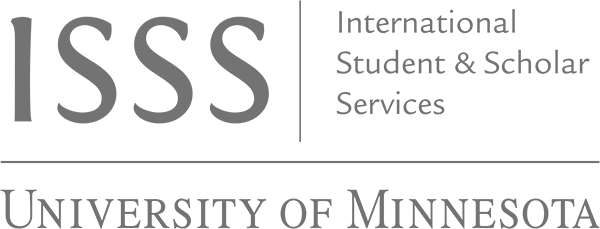DS-2019
The SEVIS DS-2019 is a legal document and must reflect accurate information. Changes in any of the categories listed below should be reported to ISSS and a new DS-2019 should be requested:
- Name
- Country of Citizenship or Country of Permanent Residency
- Change in Primary Activity and/or Site of Activity
- Financial Resources
- Addition or deletion of J-2 dependent(s)
- U.S. Residential Address (This can be updated on the University of Minnesota website MyU.)
DS-2019 End Date
The DS-2019 reflects an end date in section 3. Scholars are allowed to participate in a specific program activity (such as research, teaching, etc.) as reflected on their DS-2019 up to that date.
- The end date reflects the duration of the program, as provided by the host department. The end date may also be tied to the amount of funding available at the time the document was created.
- If a scholar completes the program activity prior to the end date, the DS-2019 will automatically expire on the date the scholar completes. Scholars have an automatic grace period of 30 days upon the completion of their program to depart the United States or apply for a change of visa status.
- If a scholar completes their program activity more than 30 days before the current DS-2019 end date, they need to please notify ISSS of their Permanent Departure, so that we can update our records.
- Scholars unable to complete their specific program activity by the end date must apply for an Extension before the end date passes.
- Scholars unable to complete their program activity by the end date and who fail to extend their DS-2019 before it expires will violate their legal status and overstay their visa.
Grace Period Eligibility
30-Day Grace Period: DHS regulations automatically provide a 30-day grace period for J-1 scholars who complete their program activity. The 30-day grace period should be calculated from the end date on their DS-2019.
Please note: Your MN driver’s license is invalid during the grace period. Do not drive with an invalid driver’s license.
Passport and Entry Visa
Passport
Scholars should maintain a valid passport at all times. The passport should be valid for at least six months into the future. U.S. federal law does not allow a J-1 visa holder to enter the United States or to be employed in the United States if the passport is expired.
Scholars should contact their consulate in the U.S. for passport renewal information. Find addresses and telephone numbers for foreign consulates in the U.S.
Entry Visa
The J-1 entry visa stamp is issued by a U.S. embassy or consulate and allows an individual to enter/re-enter the United States. A scholar's legal J-1 status while in the U.S. is dependent upon their DS-2019 form being valid or expired, not on whether the entry visa stamp in the passport is valid or expired. Scholars must have a valid entry visa stamp in their passport to re-enter the U.S. from overseas.
Canadian citizens: You are not required to have an entry visa to enter the United States.
Renewed or Changed Documents
When your documents are renewed or changed, please bring the updated document to ISSS or send a copy of the updated document to ISSS.
Form I-94
The Arrival-Departure Record, or Form I-94, is provided and required by the U.S. Customs and Border Protection (CBP) when exchange visitors arrive in the U.S. The air and sea arrival I-94 form is now electronic, and the land border I-94 form is still paper. Learn more on the Customs and Border Protection website. It is recommended that exchange visitors keep the paper I-94 stapled in their passports.
